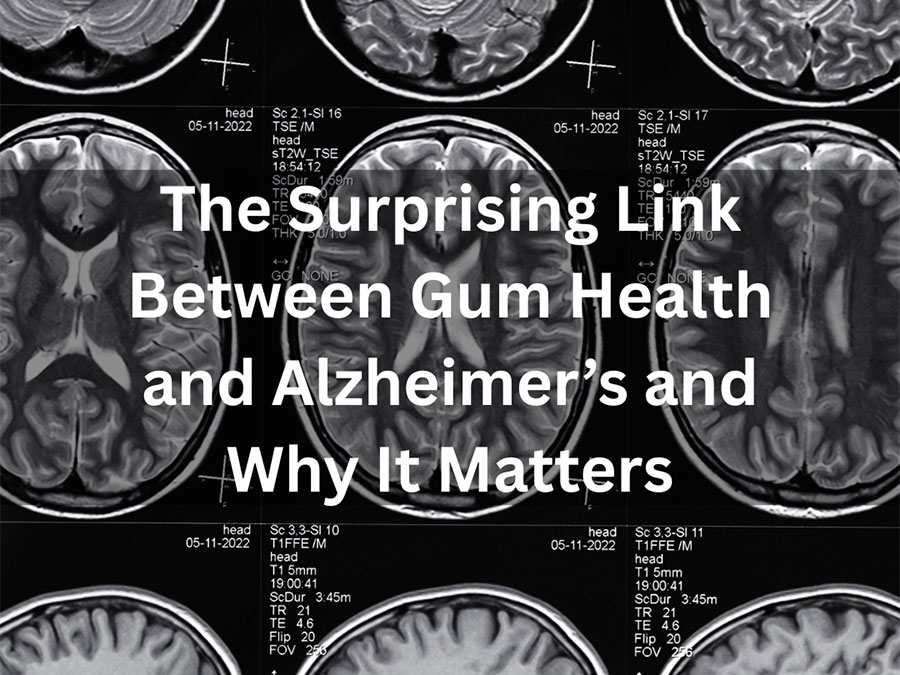The Surprising Link Between Gum Health and Alzheimer’s and Why It Matters
What if taking care of your teeth and gums did more than prevent cavities and bad breath? What if it could protect your brain? At our recent charity pickleball tournament to benefit the local nonprofit, Memory Matters, their team was very excited to talk about the new research that is pointing to a connection between gum disease and Alzheimer’s disease. While that might sound unsettling, it’s leading to promising new ways to prevent cognitive decline.
What’s the Link Between Your Gums and Your Brain?
The idea that your mouth could affect your brain isn’t as far-fetched as it might seem; dentists have known that everything in the body is connected, and that untreated gum disease can trigger chronic inflammation in the body.
But a new study from Columbia University’s College of Dental Medicine has found a compelling link between periodontal (gum) disease and brain changes that are characteristic of Alzheimer’s disease and cognitive aging. The study looked at brain scans from hundreds of participants and found that people with signs of gum disease showed unfavorable changes on brain MRIs. These changes are commonly seen in people at risk for Alzheimer’s and other dementias.
The researchers didn’t find definitive proof that gum disease causes Alzheimer’s, but the connection is hard to ignore.
Here’s why:
- Knowing that inflammation from untreated gum disease may contribute to neuroinflammation, a known factor in Alzheimer’s disease, is fascinating.
- Even more intriguing: certain bacteria under the gums were associated with either better or worse brain MRI results, suggesting your oral microbiome may influence brain health.
What Can You Do Now?
The science is still developing, and cause and effect have not been proven, but one takeaway is already clear: good oral health isn’t just about aesthetics or avoiding trips to the dentist. It could play a role in protecting your brain health, especially over the long term.
This doesn’t mean brushing, flossing, regular oral hygiene visits and dental checkups are a guaranteed way to avoid memory loss, but it does indicate that a good oral care routine could be a simple way to support your overall health, including your cognitive well-being.
Here is what you can do right now:
- Brush twice a day
- Floss daily
- Visit your dentist regularly
- Address signs of gum disease — redness, bleeding, receding gums — early
Hope for Alzheimer’s Prevention
For a long time, Alzheimer’s research focused on what happens in the brain alone. But the discovery of this mouth-brain connection is shifting that thinking. It suggests that conditions like Alzheimer’s may be influenced by infections and inflammation that start elsewhere in the body.
That’s interesting and hopeful. While we can’t control every factor involved in brain health, we can control how we care for our bodies, including our oral health.
So no, taking good care of your teeth won’t cure Alzheimer’s. But it might just be one more smart, simple way to invest in your long-term health. And as science continues to uncover the surprising links between oral and cognitive health, taking care of your mouth might turn out to be one of the most brain-friendly things you can do.






